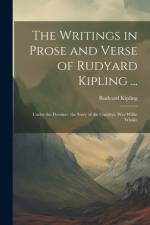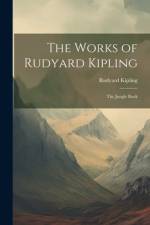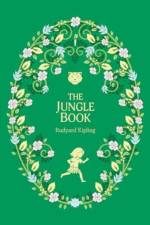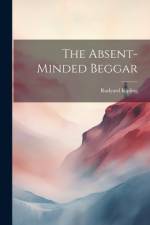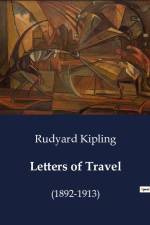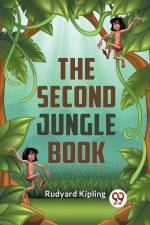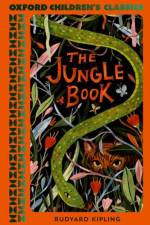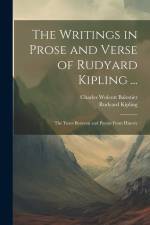av Rudyard Kipling
347
Jungle; Mowgli; Rudyard Kipling; Adventure; Wildlife; Animals; Feral Child; Baloo; Bagheera; Shere Khan; Kaa; Indian Jungle; Folklore; Morality; Civilization; Classic; Enchantment; Adaptation; Literature; Anthromorphic"The Jungle Book," written by Rudyard Kipling and first published in 1894, is a classic collection of stories that transport readers to the enchanting and untamed wilderness of the Indian jungle. Set against the backdrop of the lush and mysterious landscape, the book weaves together a series of captivating tales, each featuring a diverse cast of anthropomorphic animals and the feral child, Mowgli.At the heart of the narrative is Mowgli, a human child raised by wolves in the jungle. The stories revolve around his adventures and encounters with various jungle inhabitants, including the wise panther Bagheera, the carefree bear Baloo, the sinister tiger Shere Khan, and the hypnotic snake Kaa. Through Mowgli's experiences, Kipling explores themes of identity, belonging, and the delicate balance between the natural world and civilization."The Jungle Book" is renowned for its vivid and evocative storytelling, as well as its rich depiction of the animal kingdom. Kipling's narrative skillfully blends elements of adventure, morality, and folklore, creating a timeless work that appeals to readers of all ages. The stories not only entertain but also carry subtle moral lessons, offering insights into human nature and the intricacies of the animal kingdom.This literary masterpiece has left an indelible mark on popular culture and has been adapted into numerous films, plays, and other media over the years. "The Jungle Book" continues to captivate readers with its enduring charm, leaving them enchanted by the magic of the wild and the enduring lessons found within its pages.


